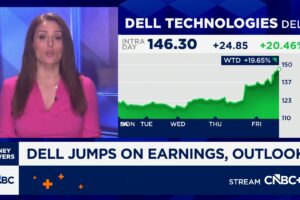

<p class="canvas-atom canvas-text Mb(1.0em) Mb(0)–sm Mt(0.8em)–sm" type="text" content="A year and a half on, Facebook’s ad ban is still plaguing the cryptocurrency industry—even now that it’s been partially lifted.” data-reactid=”19″>A year and a half on, Facebook’s ad ban is still plaguing the cryptocurrency industry—even now that it’s been partially lifted.
<p class="canvas-atom canvas-text Mb(1.0em) Mb(0)–sm Mt(0.8em)–sm" type="text" content="Startups tell Decrypt they have suffered grievous losses while struggling to market legitimate projects, which Facebook lumps in with scams and pump-and-dump schemes. What’s more, they believe Facebook’s simultaneous development of its own cryptocurrency, Libra, is blatantly anti-competitive. ” data-reactid=”20″>Startups tell Decrypt they have suffered grievous losses while struggling to market legitimate projects, which Facebook lumps in with scams and pump-and-dump schemes. What’s more, they believe Facebook’s simultaneous development of its own cryptocurrency, Libra, is blatantly anti-competitive.
<p class="canvas-atom canvas-text Mb(1.0em) Mb(0)–sm Mt(0.8em)–sm" type="text" content="Others say Facebook’s partial lift of the ban has changed very little. Some of those we spoke to are joining hundreds of other aggrieved small businesses in a global, class-action lawsuit now gearing up in Australia. The suit, which is being spearheaded by law firm JPB Liberty, seeks $500 billion in damages from Facebook, as well as Google and Twitter, which levied similar bans. ” data-reactid=”21″>Others say Facebook’s partial lift of the ban has changed very little. Some of those we spoke to are joining hundreds of other aggrieved small businesses in a global, class-action lawsuit now gearing up in Australia. The suit, which is being spearheaded by law firm JPB Liberty, seeks $500 billion in damages from Facebook, as well as Google and Twitter, which levied similar bans.
<p class="canvas-atom canvas-text Mb(1.0em) Mb(0)–sm Mt(0.8em)–sm" type="text" content="“Project Libra really exposed the hypocrisy and dishonestly of Facebook.” said Andrew Hamilton, the lead attorney for the class-action suit. “They were trying to ban new forms of crypto, while at the same time entering the industry.” ” data-reactid=”22″>“Project Libra really exposed the hypocrisy and dishonestly of Facebook.” said Andrew Hamilton, the lead attorney for the class-action suit. “They were trying to ban new forms of crypto, while at the same time entering the industry.”
<p class="canvas-atom canvas-text Mb(1.0em) Mb(0)–sm Mt(0.8em)–sm" type="text" content="While the suit names Facebook, Google and Twitter directly, Hamilton said he considers Facebook the principle offender, and alleged that the tech giant instigated the ban. ” data-reactid=”23″>While the suit names Facebook, Google and Twitter directly, Hamilton said he considers Facebook the principle offender, and alleged that the tech giant instigated the ban.
<p class="canvas-atom canvas-text Mb(1.0em) Mb(0)–sm Mt(0.8em)–sm" type="text" content="In comments to Decrypt, a Facebook spokesman who did not want to be quoted by name said the social network would look into any cases where unfairness is alleged. The spokesman added that the initial ban had been intentionally broad to better understand the crypto market; the intent had been to create clearer policy around what constitutes acceptable crypto advertising.” data-reactid=”24″>In comments to Decrypt, a Facebook spokesman who did not want to be quoted by name said the social network would look into any cases where unfairness is alleged. The spokesman added that the initial ban had been intentionally broad to better understand the crypto market; the intent had been to create clearer policy around what constitutes acceptable crypto advertising.
<p class="canvas-atom canvas-text Mb(1.0em) Mb(0)–sm Mt(0.8em)–sm" type="text" content="The gripes come in the wake of two similar developments: Facebook’s disclosure earlier this week that it was the subject of a far-ranging, U.S. antitrust probe, and the recent suing of the company in an Irish small claims court by a crypto entrepreneur who accused Facebook of “trying to muzzle his product because of its plan to launch its own currency.”” data-reactid=”25″>The gripes come in the wake of two similar developments: Facebook’s disclosure earlier this week that it was the subject of a far-ranging, U.S. antitrust probe, and the recent suing of the company in an Irish small claims court by a crypto entrepreneur who accused Facebook of “trying to muzzle his product because of its plan to launch its own currency.”
<p class="canvas-atom canvas-text Mb(1.0em) Mb(0)–sm Mt(0.8em)–sm" type="text" content="Facebook announced its crypto-ad ban on January 30, 2018, and said it was acting on behalf of retail investors, who made easy prey for fraudulent initial coin offerings via ads. Months later it updated the policy, supposedly allowing non ICO projects to advertise after first obtaining “written approval.” ” data-reactid=”26″>Facebook announced its crypto-ad ban on January 30, 2018, and said it was acting on behalf of retail investors, who made easy prey for fraudulent initial coin offerings via ads. Months later it updated the policy, supposedly allowing non ICO projects to advertise after first obtaining “written approval.”
<p class="canvas-atom canvas-text Mb(1.0em) Mb(0)–sm Mt(0.8em)–sm" type="text" content="The immediate effect however was to shut off Facebook advertising to the full spectrum of the cryptocurrency industry—not just ICOs, but charities, research firms, conference organizers, and PR firms. Given the social network’s enormous, worldwide reach, the ban was devastating to some crypto-related businesses, they claim. ” data-reactid=”27″>The immediate effect however was to shut off Facebook advertising to the full spectrum of the cryptocurrency industry—not just ICOs, but charities, research firms, conference organizers, and PR firms. Given the social network’s enormous, worldwide reach, the ban was devastating to some crypto-related businesses, they claim.
<p class="canvas-atom canvas-text Mb(1.0em) Mb(0)–sm Mt(0.8em)–sm" type="text" content="“My company never did an ICO, never had a token, we never sold anything to anyone—except selling services to other people,” said On Yavin, the founder of Tel Aviv-based research firm Cointelligence. But still, he was banned across Facebook, Google and other a host of other platforms. ” data-reactid=”28″>“My company never did an ICO, never had a token, we never sold anything to anyone—except selling services to other people,” said On Yavin, the founder of Tel Aviv-based research firm Cointelligence. But still, he was banned across Facebook, Google and other a host of other platforms.
<p class="canvas-atom canvas-text Mb(1.0em) Mb(0)–sm Mt(0.8em)–sm" type="text" content="“When I tried to approach them and explained that I have a marketing background, and that I know how these things work…they just didn’t care,” Yavin claimed. “They just said, ‘You’re a crypto company and that means you’re banned.’ We said, ‘We’re not selling anything.’ There was no real reason for them not to allow Cointelligence to advertise on these platforms.” ” data-reactid=”29″>“When I tried to approach them and explained that I have a marketing background, and that I know how these things work…they just didn’t care,” Yavin claimed. “They just said, ‘You’re a crypto company and that means you’re banned.’ We said, ‘We’re not selling anything.’ There was no real reason for them not to allow Cointelligence to advertise on these platforms.”
<p class="canvas-atom canvas-text Mb(1.0em) Mb(0)–sm Mt(0.8em)–sm" type="text" content="Facebook’s advertising platform is vital for small online businesses. According to market research firm Invesp, the company accounts for over 9 percent of all digital advertising and 18.4 percent of mobile advertising, and the ban was correspondingly ruinous. Neither did it help that, seemingly in concert with Facebook, Google and Twitter levied similar bans on the industry at roughly the same time (both of which have also been partially lifted).” data-reactid=”35″>Facebook’s advertising platform is vital for small online businesses. According to market research firm Invesp, the company accounts for over 9 percent of all digital advertising and 18.4 percent of mobile advertising, and the ban was correspondingly ruinous. Neither did it help that, seemingly in concert with Facebook, Google and Twitter levied similar bans on the industry at roughly the same time (both of which have also been partially lifted).
<p class="canvas-atom canvas-text Mb(1.0em) Mb(0)–sm Mt(0.8em)–sm" type="text" content="“Digital marketing is the be all and end all of any business today, so it had a disastrous effect,” said Shane Liddell, for whom the ban had come at the worst possible moment. Liddell was marketing a lavish new crypto conference in Tampa, Florida, and had sold 300 tickets in the first few days—before the ad ban suddenly kicked in and interest dried up. Because he had already invested heavily in the conference—hotel bookings, deposits on the venue, etc.—Liddell estimates his total losses at $80,000. ” data-reactid=”36″>“Digital marketing is the be all and end all of any business today, so it had a disastrous effect,” said Shane Liddell, for whom the ban had come at the worst possible moment. Liddell was marketing a lavish new crypto conference in Tampa, Florida, and had sold 300 tickets in the first few days—before the ad ban suddenly kicked in and interest dried up. Because he had already invested heavily in the conference—hotel bookings, deposits on the venue, etc.—Liddell estimates his total losses at $80,000.
<p class="canvas-atom canvas-text Mb(1.0em) Mb(0)–sm Mt(0.8em)–sm" type="text" content="“Our main channel of communication with the market was cut,” he said. “What annoyed me the most was that there was no consultation. Very little thought went into it.”” data-reactid=”37″>“Our main channel of communication with the market was cut,” he said. “What annoyed me the most was that there was no consultation. Very little thought went into it.”
<p class="canvas-atom canvas-text Mb(1.0em) Mb(0)–sm Mt(0.8em)–sm" type="text" content="Others say they were similarly stiffed: one startup says it was unable to advertise its social impact efforts in Africa; a publicist for a PR firm says the ban derailed an extensive social media campaign; and a freelance software engineer says he went from finding new work every day to finding none. ” data-reactid=”38″>Others say they were similarly stiffed: one startup says it was unable to advertise its social impact efforts in Africa; a publicist for a PR firm says the ban derailed an extensive social media campaign; and a freelance software engineer says he went from finding new work every day to finding none.
<p class="canvas-atom canvas-text Mb(1.0em) Mb(0)–sm Mt(0.8em)–sm" type="text" content="In May 2018, Facebook announced it would lift the ban for ads related to “blockchain technology, industry news, education, and events related to cryptocurrency,” which would be able to run without written approval. But advertisers would still need to seek approval for ads related to the sale of cryptocurrency—”cryptocurrency exchanges and mining software and hardware,” for instance. Approval would be based on “credibility”—“licenses they have obtained, whether they are traded on a public stock exchange, and other relevant public background on their business.”” data-reactid=”39″>In May 2018, Facebook announced it would lift the ban for ads related to “blockchain technology, industry news, education, and events related to cryptocurrency,” which would be able to run without written approval. But advertisers would still need to seek approval for ads related to the sale of cryptocurrency—”cryptocurrency exchanges and mining software and hardware,” for instance. Approval would be based on “credibility”—“licenses they have obtained, whether they are traded on a public stock exchange, and other relevant public background on their business.”
<p class="canvas-atom canvas-text Mb(1.0em) Mb(0)–sm Mt(0.8em)–sm" type="text" content="But Cheryl Douglass, a marketing lead at ConsenSys (which funds Decrypt), says ads that should now be admissible are still being rejected. Recently, the platform rejected a campaign for an innocuous educational program, which read: “Register for ConsenSys Academy’s Developer Program.” ” data-reactid=”40″>But Cheryl Douglass, a marketing lead at ConsenSys (which funds Decrypt), says ads that should now be admissible are still being rejected. Recently, the platform rejected a campaign for an innocuous educational program, which read: “Register for ConsenSys Academy’s Developer Program.”
<p class="canvas-atom canvas-text Mb(1.0em) Mb(0)–sm Mt(0.8em)–sm" type="text" content="She suspects the keyword, “ConsenSys,” has been flagged. Similarly, Douglass said, the system tends to reject words like blockchain, crypto, ethereum, decentralization, Web 3.0, DeFi, and Solidity.” data-reactid=”41″>She suspects the keyword, “ConsenSys,” has been flagged. Similarly, Douglass said, the system tends to reject words like blockchain, crypto, ethereum, decentralization, Web 3.0, DeFi, and Solidity.
<p class="canvas-atom canvas-text Mb(1.0em) Mb(0)–sm Mt(0.8em)–sm" type="text" content="The word “Libra,” however, is apparently admissible.” data-reactid=”42″>The word “Libra,” however, is apparently admissible.










